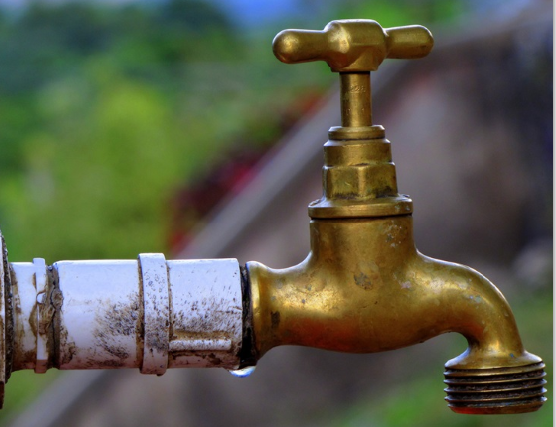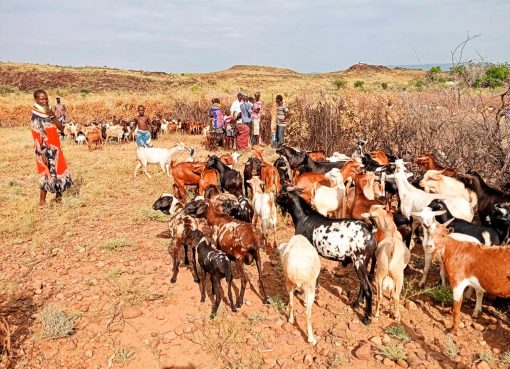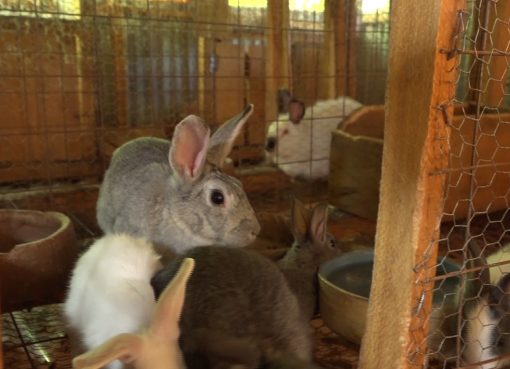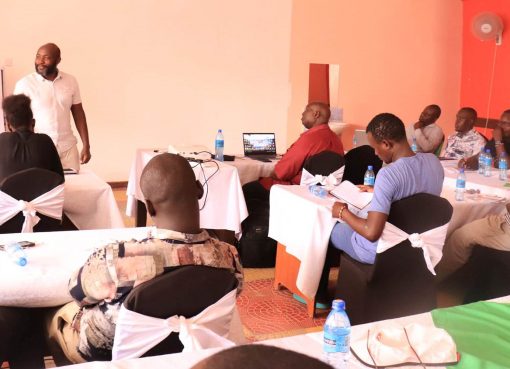The County Government of Nakuru is forging public-private partnerships to improve water and sewerage infrastructure in the devolved unit.
Deputy Governor Mr David Kones said the county government will marshal for more resources both locally and internationally to undertake new water projects and enhance existing dilapidated water and sewerage infrastructure.
Mr Kones said clean water provision remains a constitutional right and they will cooperate with all stakeholders to have Nakuru people access that right.
“In line with Governor Susan Kihika’s development agenda we will aspire to achieve 100 per cent clean water connectivity and also brainstorm on the aspect of affordability. We are doing all we can to ensure resources to expand and rehabilitate the infrastructure are available,” he said.
With households in Nakuru generating about 300 million litres of waste water daily, Mr Kones emphasized the need to put in place a modern and efficient waste water management system which will take into account the recycle and reuse concept and enhance separation of storm water and waste water from residential areas for appropriate filtering and safe disposal.
He expressed concern that most of the waste water ends up in rivers and main water sources downstream, putting residents at risk of contracting waterborne diseases like typhoid, dysentery and cholera.
The county falls short of adequate daily water supply with the demand estimated to be 70,000 cubic metres per day.
Data from Nakuru Water and Sanitation Company, NAWASCO, indicates that the current supply stands at 40,000 cubic metres and with the town’s status already elevated to City status partnerships among utilities and other government agencies are crucial to avoid rampant rationing.
Consequently, he said the county administration will offer the necessary support and resources to ensure Nakuru residents have access to water and basic sanitation services.
He said the devolved unit was keen to boost water storage capacity through channeling of resources to boreholes and mapping underground sources.
Mr Kones indicated that the county administration was also undertaking policy, governance and legal interventions, to increase water storage, and improve sanitation and food security in the county.
“As we endeavour to achieve the right to clean and safe water in adequate quantities, there is a need to recognize that the Constitution of Kenya 2010, in Article 43 (1), (b), (c), (d), guarantees reasonable standard of sanitation, freedom from hunger, and safe water in adequate quantities,” Mr Kones stated.
Speaking at Karima Mixed Secondary School Mr Kones pointed out that the county’s water and sewerage infrastructure is dilapidated and depressed and cannot cope with the demands of the current county’s population.
The Deputy Governor indicated that fixing the water demand and supply gap will reduce production costs and spur investment and job creation in the sector.
“We are committed to expanding the scope of water coverage, enhancing sustainability of projects and understanding the role of every stakeholder in water, environment, sanitation and climate change sectors. The County administration is offering support to water utilities to enable proper management of water projects which in turn will translate into good service delivery,” Mr Kones explained.
He was accompanied by the County Executive Committee Member (CECM) in Charge of Water, Environment, Energy, Natural Resources and Climate Change Dr Nelson Maara and Nakuru Water and Sanitation Services Company Limited (NAWASSCO) Managing Director Mr James Ng’ang’a.
According to World Health Organization (WHO) it is estimated that sub-Saharan Africa loses an equivalent of four per cent of its GDP as a result of inadequate water supply and sanitation. Part of this is made up of the heavy disease burden occasioned by diseases linked to water and sanitation challenges.
“The Governor has pledged to oversee revamping and expanding the sewerage system in Nakuru city and other towns, including Naivasha, Gilgil and Molo. Nakuru is now a city and sanitation has to be given top priority in terms of having clean water and a proper sewerage system,” Mr Kones observed.
The Deputy Governor indicated that plans were in place to expand the sewer systems to other parts of the city, including informal settlements.
“We intend to expand the sewerage system to various estates in Nakuru city which have for long been relying on alternative methods of waste disposal, including septic tanks. We will also upgrade our two existing treatment plants in Kivumbini and Mwariki,” added Mr Kones.
Only Milimani, Langa Langa, London, the town centre, Racecourse and Freehold estates have access to sewerage services.
A significant number of estates in the city, including posh ones, are not linked to the sewer system. They include Bismarck, Kenya Industrial Training Institute (KITI), Kiamunyi and Ranges View, which adjoins the affluent Milimani.
Others that are not connected to the main sewer line include Ngata, Mwariki, Baruti, Langa Langa and the informal settlements of Kivumbini, Lake View, Kwa Rhoda, Kaptembwa, Kaloleni and Bondeni.
Residents in these estates rely on septic tanks. When their septic tanks are full, they hire exhausters which charge between Sh2, 000 and Sh3, 000 per trip to take out their waste to the main sewer treatment plant.
In virtually all these estates connected to the old sewerage system the sight of raw sewage is a common sight with sewer lines sometimes bursting and leaking, putting residents at risk of contracting diseases.
Mr Kones said among the projects the county government had lined up to alleviate water shortage in Nakuru are the last mile water pipe connectivity to rural households from Itare Dam once its construction resumes and the expansion of Turasha Dam in Gilgil to bolster water supply to Gilgil sub-county and Nakuru Town.
The County Government is partnering with Vitens Evides International which is providing technical assistance to the Nakuru Water and Sanitation Services Company Ltd (NAWASSCO), Nakuru Rural Water and Sanitation Company Limited (NARUWASCO) and Naivasha Water, Sewerage and Sanitation Company Ltd (NAIVAWASCO) to reduce non-revenue water from an average of 54 per cent to 20 per cent.
A Non-Revenue Water (NRW) audit revealed that NAWASSCO, NARUWASCO and NAIVAWASCO lose more than half of their treated drinking water to leaks, theft and meter inaccuracies, resulting in monthly losses of over Shs40 million and scarcity of the commodity.
Non-Revenue Water (NRW) refers to water lost through illegal connections, inefficient or rundown supply infrastructure and malfunctioning meters. Water Services and Regulatory Board (WASREB) defines levels of NRW of under 20 per cent as good, 20-25 as acceptable and over 25 per cent as not acceptable.
By Anne Mwale





